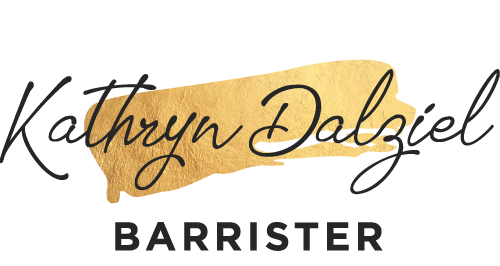I had the pleasure of attending the “Conference To Mark The Retirement Of The Chief Justice” from 31 January – 1 February 2019. The promotional material promised a distinguished faculty of national and international speakers, all of whom lived up to their reputation. The papers were excellent: interesting, stimulating, and challenging.
There was a fascinating paper by Professor Peter Watts QC. He reminded us of “licence fee damages”. This is a sum of money a Court can award to a plaintiff if the defendant has done something involving the plaintiff’s property or information which has not actually caused loss to the plaintiff but yet was done without the plaintiff’s permission. The Court identifies a notional licence fee that the plaintiff would have received if the defendant had obtained the prior permission of the plaintiff.
These damages are sometimes referred to as Wrotham Park damages from the UK case Wrotham Park Estate Co Ltd v Parkside Homes Ltd [1974] 1 WLR 798, in which the Court created a 'hypothetical bargain' between the parties in order to license the wrongful behaviour of the defendant.
These are not common damages. The most often-sought damages are compensatory. As the name suggests their purpose is to compensate a person for the loss suffered as a result of another person, breaching a contract, being negligent, or unfairly gaining property or a financial advantage over another person.
Compensatory damages make sense: the law should award compensation to someone who has unjustly suffered a loss and, as a general rule, it should not interfere where there has been no loss.
But there are times when simply restricting damages to compensating the aggrieved party does not go far enough. One example of where the law provides a further remedy is exemplary damages which are designed to penalise the wrongdoer. The problem is that the wrongdoing has to be at the high end of the scale i.e. really serious before exemplary damages are awarded. The Courts can also order some form of restitution for an unjust enrichment. This works fine if a person has obtained a benefit as result of their wrongdoing.
But what happens if there has not been any enrichment but it is just plain wrong that a person gets away with the wrongdoing? We are seeing the law recognise more often that some forms of civil wrongdoing should result in a payment which is effectively a “back-licence” or “user-fee”.
What are some examples of these sorts of damages?
• A council committing trespass by constructing a sewer pipe through a private property without notification or consent. The owners of the property were entitled to the reasonable price of purchasing the right to use the land in this way (Roberts v Rodney District Council [2001] 2 NZLR 402)
• A neighbour building a garage and decking along the front of their house which protruded into an easement for the benefit of the next door neighbour. The next door neighbour was entitled to damages based on what the court estimated would have been the value of the right to use the land if the neighbours had negotiated before the garage and decking was started. (Knowles v Henderson [1992] HC Auck, CP1110/90)
Wrotham Park damages have been recently considered in the UK in which, in one case, the plaintiff asked the Court to extend the damages to employees taking confidential information (Marathon Asset Management LLP & anr v Seddon & anr [2017] EWHC 300 (Comm) and, in another case, the plaintiff asked the Court to extend the damages to business vendors breaching a restraint of trade (Morris-Garner and another v One Step (Support) Ltd [2018] UKSC 20. In both cases, the UK Courts refused the extension into these areas, saying compensatory damages or other well established forms of damages were better pathways to resolve the breaches. It would be interesting to see if New Zealand courts would agree.
The “imaginary negotiation” is merely a way of deriving the value of a right, where the usual approach to damage does not work. It is a good example of the Courts carefully and cautiously developing the law so that justice may be done.

